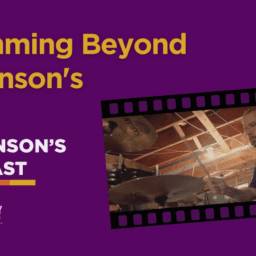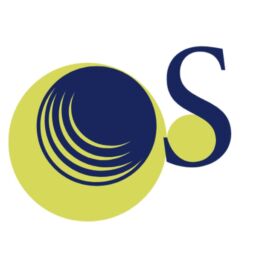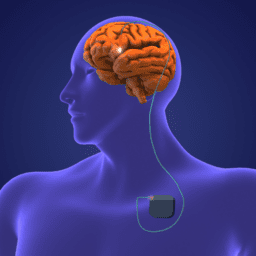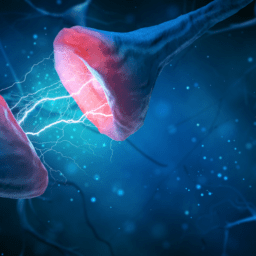Fireflies light up Parkinson’s research. A deep dive into the gut. GCase discoveries. Mouse brain mapping. Music and fine motor skills. Here’s what’s new in the world of Parkinson’s this month. Let us know if we missed anything!
PARKINSON’S ARTICLES
- Using gene-editing tools, researchers at University of Utah Health were able to insert into human genes a firefly gene that encodes a light-producing protein. In their report published in the Journal of Biological Chemistry, the team explains how this process allowed them to run millions of assessments to study how a variety of small molecules might affect alpha-synuclein. One potentially game-changing discovery was how a molecule called A-443654 might inhibit the production of alpha-synuclein, which can lead to Parkinson’s when it forms toxic aggregates. In addition, A-443654 also may alleviate the harm to cells caused by alpha-synucelin aggregates.
- In the journal Movement Disorders, a research team led by scientists at the Tel-Aviv Medical Center and Biogen share findings from a series of statistical analyses showing that activity of the enzyme glucocerebrosidase (more commonly known as GCase) is not associated with a risk of developing Parkinson’s or with its severity.
- A study led by researchers at the National Neuroscience Institute in Singapore and recently published in npj Parkinson’s Disease found that high blood pressure more than doubled the risk of Parkinson’s in an Asian population-based study. The study, which included 671 people with Parkinson’s and the same number of participants without neurodegenerative diseases included only Han Chinese, the predominant ethnic group in the Singapore population. The presence of hypertension was associated with a 1.9-fold higher risk of Parkinson’s, even after adjusting for age and sex, and remained significant after further adjustments for hypertension-associated conditions such as diabetes, higher fat levels in the bloodstream, and smoking status.
- An article in the latest edition of Brain & Life takes a close look at what researchers know about the connection between the brain and the gut, including how this relationship relates to Parkinson’s.
- With funding from a five-year, $11.7 million National Institute of Neurological Diseases and Stroke grant, the University of Michigan will reopen its Morris K. Udall Center of Excellence in Parkinson’s Disease Research to study falls, gait, and cognitive challenges commonly experienced by people with Parkinson’s.
- In a paper published in the Journal of Parkinson’s Disease, two research program directors at the Michael J. Fox Foundation for Parkinson’s Research (MJFF) state that “the current picture of [Parkinson’s] has been assembled from a relatively homogenous population, and data remain sparse or are non-existent on many traditionally underrepresented groups: Black, Latino, Asian, Indigenous groups, LGBTQ+, and individuals of lower socioeconomic status.” To help remedy these health inequities, the authors highlight four areas of action: identifying barriers and delivering solutions to research participation; funding research that includes greater diversity; building a workforce of doctors and researchers committed to equity; and supporting a more holistic understanding of Parkinson’s.
- Findings published in Behavioural Neurology that looked at data from 262 people with Parkinson’s showed that more than one in three people with Parkinson’s experience minor hallucinations, and that these hallucinations are linked to lowered quality of life and quality of sleep.
- An interdisciplinary research team of graduate students and faculty from William & Mary and Virginia Commonwealth University is developing an innovative new treatment for motor symptoms of Parkinson’s, using a combination of hardware and software to administer targeted vibrations in response to symptoms like tremor and freezing of gait. The project was recently awarded funding from the National Institutes of Health’s National Institute of Neurological Disorders and Stroke.
- For a meta-analysis study recently published in BMC Geriatrics, researchers reviewed data from 17 studies (which in total included 375,964 people with Parkinson’s and 879,307 people with cancer) published between 2000 and 2020 and found that people with Parkinson’s are significantly less likely to develop colorectal cancer than people without Parkinson’s.
- In a study published in Nature, a research team led by faculty at the University of California, Los Angeles (UCLA) explain how they mapped out the “intricate circuitry of the mouse brain” to help fellow researchers conduct more accurate experiments in mouse models of neurological conditions such as Parkinson’s and Huntington’s.
- Researchers at the Medical University of South Carolina recently published a study in the Proceedings of the National Academy of Sciences building off an earlier finding that Bach1, a regulatory protein, is dysregulated in Parkinson’s. The team found that levels of Bach1 were increased in autopsied brain of people with Parkinson’s and that cells without Bach1 were protected from damages that accumulate in Parkinson’s. With this knowledge, the researchers collaborated with vTv Therapeutics to develop Bach1 inhibitors (called HPPE) and tested these inhibitors in a neurotoxin-based Parkinson’s mouse model. Results suggested that disruption of Bach1 and the simultaneous activation of Nrf2 (another protein) support the use of HPPE as a potential treatment for Parkinson’s.
- A three-year, $8.9 million grant from the Aligning Science Across Parkinson’s (ASAP) initiative will allow researchers led by Cornell’s Medicine’s Dr. Michael Kaplitt to conduct a multi-institutional collaborative effort to study how abnormal protein aggregates may spread from the gut to the brain and drive the early stages of Parkinson’s.
- By analyzing data collected by the U.S. National Vital Statistics System, researchers at the University of Iowa’s College of Public Health found that the number of people in the US dying from Parkinson’s has increased by 63% in the past two decades. The findings, recently published in Neurology, also showed that men were at double the risk of dying from Parkinson’s than women.
- In the journal Nature Flexible Electronics, researchers at the University of Groningen in the Netherlands highlight the ways new wearable, flexible sensors, which can be placed in a person’s shoe or woven into their clothes, may be able to gauge the progression of motor symptoms, and perhaps prevent falls, in people with Parkinson’s.
PARKINSON’S treatments and THERAPIES
- Supernus Pharmaceuticals announced this month that it will purchase Adamas Pharmaceuticals for approximately $400 million. The acquisition will give Supernus access to the Adamas drug GOCOVRI (the only medication approved by the FDA for both OFF and dyskinesia in Parkinson’s) and Osmolex ER.
- A study by researchers at Carnegie Mellon University and published in the journal Science suggests that targeting specific neurons through brief bursts of electrical stimulation, rather than continually applying it, may lead to more successful deep brain stimulation (DBS) outcomes. In a mouse model, the researchers found that delivering stimulation in short bursts enabled them to target specific neurons, which restored and maintained movement several hours after stimulation and provided long-term therapeutic benefits.
- In the Journal of the Neurological Sciences, researchers share results from a post hoc analysis of clinical trial data showing that zonisamide, an approved epilepsy medication, can reduce OFF time in people with Parkinson’s without increasing side effects such as dyskinesia. Findings showed that, compared with a placebo, a 50-mg dose of zonisamide significantly reduced OFF time by nearly an hour per day, on average.
- A new partnership between MedRhythms and Universal Music Group (UMG) will greatly expand the catalog of music available to provide “entrainment” therapy for people with Parkinson’s and other neurological disorders. The collaboration will magnify “music’s profound impact to medical therapy,” says UMG’s Michael Nash.
- With a $500,000 Therapeutic Pipeline Program grant from MJFF, Mission Therapeutics will continue to investigate its lead central nervous system-penetrant USP30 DUB inhibitors through a set of studies measuring the effect of the inhibitors on dopaminergic neuron protection. The grant will also help Mission with their ongoing pre-clinical development towards candidate selection.
- Now underway is Inhibikase Therapeutics’s Phase 1b extension study investigating the safety, tolerability, and pharmacokinetics of IkT-148009, an Abelson Tyrosine Kinase inhibitor for the treatment of Parkinson’s. The 3:1 randomized, placebo-controlled trial will enroll 24 people with Parkinson’s. Results from the pharmaceutical company’s Phase 1 study of IkT-148009 in 56 elderly healthy volunteers with high drug exposure (between 12.5 and 100 mg) showed no clinically significant adverse events, findings that were consistent with exposures observed in animal efficacy studies of inherited and sporadic progressive Parkinson’s.
- Chase Therapeutics will soon begin Phase 3 clinical trials of the drug candidates CTC-501 and CTC-413, immediate- and extended-release forms of pramipexole.
- An October article by the University of Colorado School of Medicine takes a close look at an NIH-funded study on how music therapy can help people with Parkinson’s improve their fine motor skills.
- The FDA has authorized BioVie Inc., to initiate a Phase 2 double-blind, placebo-controlled, safety, tolerability, and pharmacokinetics study assessing NE3107’s potential pro-motoric impact in Parkinson’s. NE3107 is an oral small molecule compound that is blood-brain permeable and may have the potential to inhibit neuroinflammation and insulin resistance.
PARKINSON’S LIVING WELL STORIES
- Jerry Boster, Hawai‘i Parkinson Association president and Davis Phinney Foundation Ambassador, was featured in the cover story in MidWeek and shares his living well strategies; his journey with Parkinson’s; his work in Parkinson’s advocacy, education, and outreach; and much more.
- Former pilot Myrta Gage, now 84 and living with Parkinson’s, recently checked an item off her bucket list: flying a plane again.
- “With a shift in perspective and new self-management tools, it is possible to manage stress better. The benefits of adapting and managing stress are as therapeutic for [people with Parkinson’s] as any other treatment.” Read what Dr. C has to say about stress and Parkinson’s in his recent blog post on Parkinson’s News Today.
- Baking, gardening, and many other hobbies help Bev live well with Parkinson’s. Learn more about how they help her (and how they can help you!) every day.
PARKINSON’S SURVEYS, CLINICAL TRIALS, and volunteer opportunities
Genetic Counseling Training Program Research – If you have a diagnosis of Parkinson’s, you are invited to participate in a research study led by Sydney Richards, a master’s student in the Genetic Counseling Training Program at the University of Maryland School of Medicine. Sydney is conducting a new research study to better understand the experience of individuals with Parkinson’s with genetic testing. The study includes a short, online survey that should only take about 15 minutes to complete. All answers are anonymous. This study is voluntary, and your decision to participate will not affect your medical care. If you are interested in learning more about this study, click here. Responses will be accepted until November 16, 2021.
Join Google and LSVT in Project Euphonia – LSVT Global has partnered with Google on an exciting research project called Project Euphonia to help improve automatic speech recognition software for people with speech disorders. These disorders may make using devices like Google Home, The Nest and other Smart devices, Siri, Alexa, or speech-to-text frustrating. To do this, LSVT Global needs samples of disordered speech to train the system. If you’ve been diagnosed with Parkinson’s, PSP, MSA, or CBD with mild, moderate, or severe speech disorders, you are encouraged to enroll. Learn more here.
SPARX3 – A Phase 3 Clinical Trial about Exercise and Parkinson’s – This research team is currently seeking volunteers to participate in a clinical trial about the effects of aerobic exercise on people with Parkinson’s. Learn more and see if you qualify here. For more details, contact Katherine Balfany at SPARX3@ucdenver.edu.
Do you have early-stage Parkinson’s? The Orchestra Study is a clinical research study to evaluate the use of an investigational medication called UCB0599 in men and women with early-stage Parkinson’s. You can learn more and see if you qualify here.
PAIRing Up – If you are a person with Parkinson’s or a care partner to someone with Parkinson’s, you are invited to participate in an online survey to address neuropsychiatric (cognition, depression, anxiety) concerns in Parkinson’s. The survey aims to learn about the needs and priorities for clinical care, education, support, and research related to neuropsychiatric symptoms. To learn more and participate, click here to download the flyer.
A multidisciplinary research team in the UK is investigating how to best use music to help people with Parkinson’s manage symptoms related to movement and mood. This includes research about music for dancing and is the first study to incorporate the new Dance Sophistication Index for people with Parkinson’s. To learn more and take a 30-minute survey, click here.
The University of Oulu and collaborators from Aalborg University, Fraunhofer University, the University of Manchester, the University of Glasgow, the University of Lisbon, and the University of Melbourne, are conducting a survey for people with Parkinson’s and Parkinson’s care partners about self-care. Complete the survey here to share your self-care strategies and techniques. You can also review ideas submitted by others and add them to your own self-care toolbox.
BouNDless – Phase 3 trial to investigate the efficacy, safety, and tolerability of ND0612, a continuous subcutaneous levodopa/carbidopa delivery system in comparison to oral levodopa/carbidopa in people with Parkinson’s experiencing motor fluctuations
Parkinson’s Progression Markers Initiative (PPMI) Screen Survey – The Michael J. Fox Foundation
Home-based Exercise and Cognitive Behavior Therapy – University of Alabama in Huntsville
Speech and Telemedicine Study – The Purdue Motor Speech Lab
Parkinson’s and Service Dogs – University of Groningen, Netherlands
Neurology Study Interest Registry – University of Rochester
Park Test – University of Rochester
Project Euphonia – LSVT Global and Project Euphonia
For more of what’s new in Parkinson’s news, check out our full series here.
WANT MORE PRACTICAL ARTICLES LIKE THIS?
You can find much more in our Every Victory Counts® manual. It’s packed with up-to-date information about everything Parkinson’s, plus an expanded worksheets and resources section to help you put what you’ve learned into action. Request your free copy of the Every Victory Counts manual by clicking the button below.
Thank you to our 2021 Peak Partners, Adamas, Amneal, Kyowa Kirin, and Sunovion, as well as our Every Victory Counts Gold Sponsor AbbVie Grants, Silver Sponsor Lundbeck, and Bronze Sponsors Supernus and Theravance for helping us provide the Every Victory Counts manual to our community for free.

















